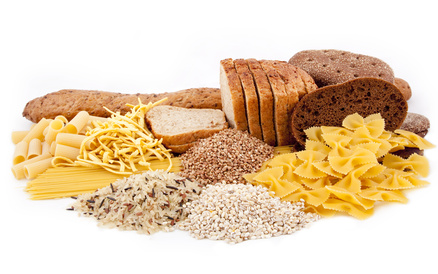
Embarking on a weight loss journey is a complex and multifaceted endeavor, especially for busy women who juggle numerous responsibilities. There is a conflict between available time and a deep desire or professional need to achieve lasting weight loss. Many busy women have realized that the dieting/calorie counting/exercise approach is far too time-consuming and not sustainable. Thus, many women rightfully perceive that approach as a waste of time.
There is a better, easier, faster, and more sustainable way, and it begins with understanding the real nature of weight issues. Once you understand what’s really going on in your body and subconscious, the choices become obvious, and you no longer need to go from one trial and error to another.
Understanding is the price you have to ‘pay’. Without understanding the entire problem, you don’t have a choice. As long as you believe in the dieting approach, you don’t have a choice but to search for the next better diet. Only once you begin to understand the connection between the subconscious and your current weight do you have a choice. The better you understand the root causes, the better you understand what you really need during your weight loss process, and that’s seldom a diet.
Understanding the common barriers that impede progress and adopting strategies to overcome them can finally empower women to achieve sustainable weight loss, while the diet approach is psychologically disempowering. In this blog post, we will talk about six key challenges—lack of self-compassion, lack of motivation, lack of support, psychological factors, busy schedules, and stress—and provide actionable strategies to address them.
1. The Importance of Self-Compassion in Sustainable Weight Loss
A weight loss journey is not just a physical endeavor but also an emotional and psychological one. Otherwise it will not be sustainable. A crucial yet often overlooked element in achieving sustainable weight loss is self-compassion. Many women struggle with being kind to themselves, especially when they fall short of their weight loss goals. The way many women talk to themselves, they would not even talk to their dog, and that must stop.
This lack of self-compassion can manifest in various ways, leading to a cycle of negative self-talk, guilt, and discouragement, which ultimately hinders their progress.
Self-compassion involves treating yourself with the same kindness, understanding, and support that you would offer to a friend. Because, your body IS your friend…your oldest and most loyal friend on the planet. It means acknowledging your struggles and imperfections without harsh judgment. And it also means being warm and understanding toward oneself during difficult times rather than being overly critical.
Many women are exceedingly harsh on themselves when they fail to meet their weight loss goals. They engage in negative self-talk, labeling themselves as “failures” or “incompetent.” This self-criticism can lead to feelings of guilt and discouragement, making it difficult to maintain healthy habits. The cycle of setting high expectations, falling short, and then punishing oneself emotionally can be detrimental to every aspect of a woman’s life and every aspect of a woman’s life and prevents you from long-term weight loss.
Negative self-talk is a common issue among women striving for weight loss. Phrases such as “I’m so lazy,” “I’ll never be able to do this,” “Look how fat I am,” or “I’m a failure” (and worse) are very common. This kind of self-dialogue can be damaging for several reasons:
- Demotivation: Constant criticism saps your motivation, making it harder to stick to a weight loss plan. When you internalize these negative messages, you are less likely to believe in your ability to succeed, which decreases your motivation to try.
- Emotional Eating: Feelings of inadequacy and self-criticism can lead to emotional eating. Many women turn to food as a source of comfort, which will result in overeating and further weight gain…a perfect downward spiral.
- Stress and Anxiety: Negative self-talk increases stress and anxiety, which can exacerbate weight gain. Stress triggers the release of cortisol, a hormone that promotes fat storage, particularly around the abdomen.
Worst of all, your subconscious is constantly listening to your thoughts and words and believes everything you think or say to be ‘true’. In previous videos and blog posts, I have already explained how we constantly feed our subconscious with unwanted information through our thoughts, the words we speak and what we believe. Negative self-talk and criticism make it impossible to lose weight for good. Even if you do lose some weight, it will always come back because your subconscious has the information that you’re “overweight and a failure,” and like a loyal servant, it will make sure that this pattern will remain your reality.
It’s on you to change your inner programming before you can even think about losing weight. Weight loss MUST begin in your subconscious.
To cultivate self-compassion and break the cycle of negative self-talk, you can adopt several strategies:
- Reframe Negative Thoughts: Challenge and reframe negative thoughts into positive or neutral ones. Instead of thinking, “I failed to stick to my diet,” try thinking, “I have found a better way to lose weight for good, and I give my subconscious new information.”
- Practice Self-Kindness: Treat yourself with the same kindness and patience that you would offer a friend. Recognize that everyone makes mistakes and that setbacks are a normal part of the journey. Failing with a diet is not even your fault other than that you chose the diet approach. You simply didn’t know better before.
- Seek Support: Join one of our support groups where you can learn new information and sustainable ways of losing weight. Having a supportive network can help you stay compassionate toward yourself.
- Watch my Videos: Unlearn the obsolete diet myth and learn how your subconscious works and how you can turn it into a better servant, assisting you in your weight loss process.
Research has shown that self-compassion can lead to healthier behaviors and better mental health. A study published in the Journal of Health Psychology found that individuals with higher levels of self-compassion were more likely to engage in health-promoting behaviors such as regular exercise and healthy eating.
By practicing self-compassion, you can create an easier, faster, healthier, and more sustainable approach to weight loss. Instead of focusing on perfection, you now focus on progress, recognizing that setbacks are a feedback and opportunities for growth rather than failures.

2. Boosting Motivation for a Successful Weight Loss Journey
Motivation is a significant factor in maintaining a weight loss journey. Without a strong motivation, not much gets achieved. Many people start their weight loss efforts with high levels of enthusiasm, driven by the prospect of achieving their goals. However, as time progresses and results are not immediate, this motivation often wanes. Understanding the nature of motivation and employing effective strategies to sustain it can make a substantial difference in achieving long-term weight loss success.
Motivation is a dynamic and multifaceted phenomenon that varies in intensity and direction. It can be intrinsic, driven by internal desires such as health and well-being, or extrinsic, fueled by external factors like social approval or rewards. For sustainable weight loss, intrinsic motivation is more powerful because it aligns with personal values and long-term goals.
Several factors contribute to the decline in motivation over time. These include:
- Slow Progress: Weight loss is often slower than expected, leading to frustration and a loss of enthusiasm.
- Plateaus: Hitting a plateau where weight loss stalls can be discouraging.
- Monotony: Repetitive routines can become boring, reducing the initial excitement.
- External Stressors: Life stressors such as work, family responsibilities, and personal issues can divert attention and energy away from weight loss efforts.
- Hunger and Cravings: When you’re hungry or crave certain foods, your body is on survival mode and its entire energy is focused on food. That moment motivation instantly moves to the end of the body’s priorities.
To overcome these challenges and maintain motivation, consider the following strategies:
- Set Realistic Goals
Setting realistic and achievable goals is crucial for maintaining motivation. Unrealistic expectations can lead to disappointment and a sense of failure, which quickly diminishes enthusiasm and creates a subconscious programming of failing. Break down your overall weight loss goal into smaller, manageable steps. For example, instead of aiming to lose 50 pounds, set a goal to walk 15 minutes every day or to drink more water. This approach allows for regular achievements, which can keep you motivated.
- Stop Dieting and Choose a More Sustainable Method
Diets, particularly those that are restrictive or extreme, are not a sustainable solution for lasting weight loss. One primary reason is that they often lead to a cycle of yo-yo dieting, where individuals lose weight temporarily but then regain it once they return to their regular eating habits. This cycle can be detrimental to both physical and mental health. According to research, restrictive diets can slow down metabolism, reduce muscle mass, and increase cravings, making it harder to maintain weight loss over the long term. Additionally, the psychological impact of dieting can be significant, leading to feelings of deprivation, guilt, and failure when individuals inevitably slip up. This negative relationship with food and self can further hinder the ability to achieve and maintain a healthy weight.
In contrast, weight transformation through the transformation of the root causes, sustainable lifestyle and habit changes is easier, faster, more effortless, and more sustainable. Instead of focusing on what you can’t eat, this approach emphasizes positive, long-term changes in eating habits, physical activity, and mental well-being. By incorporating balanced nutrition, regular exercise, and stress management techniques, you can achieve a healthier weight without the severe restrictions of traditional diets. This holistic approach not only supports weight loss but also improves overall health and well-being. Sustainable weight loss is achieved by creating habits that can be maintained for a lifetime, making it a more effective and enjoyable path to a healthier you.
- Build a Support System
Having a support system can significantly impact your motivation. Surround yourself with supportive friends, family members, or join a weight loss group. Sharing your journey with others can provide encouragement, accountability, and inspiration.
Since many women have made rather negative experiences with families and friends, we recommend joining a group of like-minded women who have gotten on the same path of working on their subconscious levels rather than on diet. For that purpose I have created several support groups for different needs. [LINK Pre-registration Support Group]
One of the very big mistakes many busy women make is to believe that they can succeed on their weight loss journey alone. Thus they keep repeating what they already know and what they already have done and failed with. We humans don’t know what we don’t know, and over 90% of overweight women have no idea what can really help them lose weight for good.
If you’re a busy woman who has not time to waste, join me with one of my groups of like minded women and see how much faster and more effortless you can begin to lose weight.
Maintaining motivation throughout a weight loss journey can be challenging, but it is essential for long-term success. Be smart and get a team behind you that understands what you’re going through and that can offer you better solutions.
- Focus on Non-Scale Victories
Weight loss is not just about the number on the scale. Non-scale victories, such as improved energy levels, better sleep, and increased fitness, are equally important and can boost your motivation. Often women first lose volume before they lose weight.
Conclusion:
By incorporating self-care practices, positive self-talk, and self-compassion into your daily routine, you can provide the necessary support from within to achieve sustainable weight loss. Nurturing a positive relationship with yourself and improve self-belief will help you develop the resilience needed to navigate the challenges of your weight loss journey. Remember, you are your own best ally, and with the right mindset and self-support, you can achieve your goals and live a healthier, happier life.
This Blog Post will be continued!
Recommended Video Series:
To dive deeper into these topics, watch my video series “How to Achieve Lasting Weight Loss: Overcoming Women’s Unique Challenges.”
- Part 1: https://youtu.be/bfQaqeQDstw
- Part 2:



 Women all around the world have experienced this: they go on a diet, lose some weight and after a while they gain the lost weight back. The harder the diet was, the more frustrating this is.
Women all around the world have experienced this: they go on a diet, lose some weight and after a while they gain the lost weight back. The harder the diet was, the more frustrating this is. 








 Did you ever hear the saying that once you can ride a bicycle you’ll never forget how to do it? Even if you would not use it for 20 years and then one day decide that you want to take the bicycle instead of the car, you would still do it the right way without having to think about.
Did you ever hear the saying that once you can ride a bicycle you’ll never forget how to do it? Even if you would not use it for 20 years and then one day decide that you want to take the bicycle instead of the car, you would still do it the right way without having to think about.  Improving the quality of sleep and getting enough sleep (7.5 to 8 hours every night) is another such power habit that creates a domino effect. You lose weight easier and faster, you have more stamina during the day, you are more focused and concentrated, and you have more energy to go out and so some exercise.
Improving the quality of sleep and getting enough sleep (7.5 to 8 hours every night) is another such power habit that creates a domino effect. You lose weight easier and faster, you have more stamina during the day, you are more focused and concentrated, and you have more energy to go out and so some exercise.
 Our body always follows the rules of nature and is most of the time smarter than the person sitting inside of the body. But once we begin to understand the nature of our bodies, how it works, what it needs to accomplish, and how we can rather support our body instead of trying to force something onto it, we become a team and changes will be much easier and more effective. Then you will be the smart leader and your brain and body will become your enthusiastic partners supporting you in your weight loss goals.
Our body always follows the rules of nature and is most of the time smarter than the person sitting inside of the body. But once we begin to understand the nature of our bodies, how it works, what it needs to accomplish, and how we can rather support our body instead of trying to force something onto it, we become a team and changes will be much easier and more effective. Then you will be the smart leader and your brain and body will become your enthusiastic partners supporting you in your weight loss goals.










 I can’t count how many examples of negative self-talk I have heard from women in my 38 years of being a weight loss coach. Many of the things women tell themselves made me even cry. And these were all wonderful, lovely and loveable women. Yet they all found the worst names for themselves….worse names than they would ever call a dog, let alone somebody else.
I can’t count how many examples of negative self-talk I have heard from women in my 38 years of being a weight loss coach. Many of the things women tell themselves made me even cry. And these were all wonderful, lovely and loveable women. Yet they all found the worst names for themselves….worse names than they would ever call a dog, let alone somebody else. These negative self-talks are so common among overweight women, yet they are far from being helpful. That way we can’t build a good relationship with our body and promote lasting weight loss. In order to lose extra weight for good, you need to be in a good relationship with your body to get its full collaboration. How would you like if somebody called you the worst names and then expected you to help them do something for them? Your healthy reaction would be to respond, “Since you can’t be friendly to me, why would I waste any time and energy helping you?”
These negative self-talks are so common among overweight women, yet they are far from being helpful. That way we can’t build a good relationship with our body and promote lasting weight loss. In order to lose extra weight for good, you need to be in a good relationship with your body to get its full collaboration. How would you like if somebody called you the worst names and then expected you to help them do something for them? Your healthy reaction would be to respond, “Since you can’t be friendly to me, why would I waste any time and energy helping you?” 
 To that Laura says, “Well that’s another one of those components. It’s like life is happening now, it’s not a dress-rehearsal, and why would we want to start liking and loving ourselves once the weight is off? I mean, I understand intellectually why people go there. Because they think in their minds, ‘I am not going to love myself until after I get thin or after I stop eating so much.’ But the truth is that you are who you are now, not later. Now. So the love has to be and the self-acceptance has to begin now. And from that place you will stop the war.”
To that Laura says, “Well that’s another one of those components. It’s like life is happening now, it’s not a dress-rehearsal, and why would we want to start liking and loving ourselves once the weight is off? I mean, I understand intellectually why people go there. Because they think in their minds, ‘I am not going to love myself until after I get thin or after I stop eating so much.’ But the truth is that you are who you are now, not later. Now. So the love has to be and the self-acceptance has to begin now. And from that place you will stop the war.” Emotional eating is an issue many overweight women are struggling with. The problem is that they don’t understand the real cause behind emotional eating and thus try to tame the beast with willpower.
Emotional eating is an issue many overweight women are struggling with. The problem is that they don’t understand the real cause behind emotional eating and thus try to tame the beast with willpower. When I asked her what the reason for our obesity epidemic in the Western world might be despite of the fact that we have so much food to choose from, she said, “There is definitely something wrong in the system and there are a lot of factors that contribute to that. I think the whole world is feeling so much stress. People who work in corporate jobs are functioning with so much pressure and so much uncertainty. People are so overwhelmed with their lives; and overcommitted. There are so many demands and responsibilities and less support, and less social interaction; which is one of the keys to happiness. Stress is really equivalent to what smoking was in the 50’s. It’s killing us. One of our favorite responses is to overeat and I think that people just don’t make time for themselves and they just don’t pay attention. There is a lot of unconscious eating going on until something happens and then you say: Okay, I’ve got to do something about it.”
When I asked her what the reason for our obesity epidemic in the Western world might be despite of the fact that we have so much food to choose from, she said, “There is definitely something wrong in the system and there are a lot of factors that contribute to that. I think the whole world is feeling so much stress. People who work in corporate jobs are functioning with so much pressure and so much uncertainty. People are so overwhelmed with their lives; and overcommitted. There are so many demands and responsibilities and less support, and less social interaction; which is one of the keys to happiness. Stress is really equivalent to what smoking was in the 50’s. It’s killing us. One of our favorite responses is to overeat and I think that people just don’t make time for themselves and they just don’t pay attention. There is a lot of unconscious eating going on until something happens and then you say: Okay, I’ve got to do something about it.” Stress causes emotion, tension, fatigue and a lot more…all reasons that are driving us to the refrigerator. A lot of times you don’t even realize what’s happening there and why you are looking for food.
Stress causes emotion, tension, fatigue and a lot more…all reasons that are driving us to the refrigerator. A lot of times you don’t even realize what’s happening there and why you are looking for food. Can you believe it? There are only five more weeks left to the end of this year. This is the time when people begin to think about their goals they wanted to achieve this year but didn’t. Millions of women are beginning to realize that, once again, they did not achieve their weight loss goal. And once again they blame themselves.
Can you believe it? There are only five more weeks left to the end of this year. This is the time when people begin to think about their goals they wanted to achieve this year but didn’t. Millions of women are beginning to realize that, once again, they did not achieve their weight loss goal. And once again they blame themselves. The thing is that neither Dr. Oz nor Oprah or any other person who publically talks about a new weight loss program is wrong per se. Some tactics actually do work for some people for some time. That’s why they come across as so credible – because they truly believe what they are saying. But they are not the ones who work with clients for years and decades to see the long-term results.
The thing is that neither Dr. Oz nor Oprah or any other person who publically talks about a new weight loss program is wrong per se. Some tactics actually do work for some people for some time. That’s why they come across as so credible – because they truly believe what they are saying. But they are not the ones who work with clients for years and decades to see the long-term results.  Just think about, seen in that light, how much sense does any tactical advice “Do A to get B” make? It’s like the follower who tried to convince me that for everybody the first step had to be a liver cleanse. But what if your root cause is a psychological one? What if one of your causes is a hormonal problem? What if it’s a lack of sleep? Yes, cleansing the liver is always a good idea early in the process, but it’s not the only tactic and it’s certainly not for every woman to use it as a first step. This is just an example. You can take every recommendation regarding weight loss you have ever heard and use that same logic.
Just think about, seen in that light, how much sense does any tactical advice “Do A to get B” make? It’s like the follower who tried to convince me that for everybody the first step had to be a liver cleanse. But what if your root cause is a psychological one? What if one of your causes is a hormonal problem? What if it’s a lack of sleep? Yes, cleansing the liver is always a good idea early in the process, but it’s not the only tactic and it’s certainly not for every woman to use it as a first step. This is just an example. You can take every recommendation regarding weight loss you have ever heard and use that same logic. So what can you do right now?
So what can you do right now? As soon as you come to the point where you are ready to leave the diet path and make new and better experiences, I’m here for you and I can’t wait to work with you. I promise this is going to be an exciting journey and you will love it.
As soon as you come to the point where you are ready to leave the diet path and make new and better experiences, I’m here for you and I can’t wait to work with you. I promise this is going to be an exciting journey and you will love it.
 “I followed the low fat, low cholesterol hypothesis and I got rid of all the bad cholesterol in my diet. You wouldn’t know it that my body got heavier and my blood pressure went higher, my blood sugar higher HDL/good cholesterol went lower. Basically I made all my conditions worse by following the accepted dietary guidelines, which are still the accepted dietary guidelines. It’s interesting too because when I failed the low fat, low cholesterol diet I put myself on medication and I wasn’t understanding at that time the correct way to eat. So I put myself on the blood pressure medication, I put myself on the cholesterol lowering medication and I actually put myself on the medications until I started to understand the correct way to eat. That understanding was a big ‘eEureka!’ moment in my life when I understood that low fat, low cholesterol eating styles are actually harmful and deadly. I switched away what I was eating, I started eating more fat cholesterol, and wouldn’t you know it, I blew up 70+ pounds, came off my mediactions and the rest is history. Armed with that knowledge, I started bringing that into my practice; telling my patients the correct way to eat. Now, 16 years from that I literally have thousands upon thousands of patients eating the correct way with wonderful, miraculous and marvelous results.”
“I followed the low fat, low cholesterol hypothesis and I got rid of all the bad cholesterol in my diet. You wouldn’t know it that my body got heavier and my blood pressure went higher, my blood sugar higher HDL/good cholesterol went lower. Basically I made all my conditions worse by following the accepted dietary guidelines, which are still the accepted dietary guidelines. It’s interesting too because when I failed the low fat, low cholesterol diet I put myself on medication and I wasn’t understanding at that time the correct way to eat. So I put myself on the blood pressure medication, I put myself on the cholesterol lowering medication and I actually put myself on the medications until I started to understand the correct way to eat. That understanding was a big ‘eEureka!’ moment in my life when I understood that low fat, low cholesterol eating styles are actually harmful and deadly. I switched away what I was eating, I started eating more fat cholesterol, and wouldn’t you know it, I blew up 70+ pounds, came off my mediactions and the rest is history. Armed with that knowledge, I started bringing that into my practice; telling my patients the correct way to eat. Now, 16 years from that I literally have thousands upon thousands of patients eating the correct way with wonderful, miraculous and marvelous results.” “Wherever that sugar molecule comes from, the cells are going to create deadly cholesterol and fat making us heavier and create a host of a lot other deadly problems. So I like to tell my patients, and I like them to repeat this little mantra, I say repeat after me ’Carbohydrates are broken down into sugars and sugars create cholesterol and fat.’ And I also say that ‘carbohydrates are carbohydrates are carbohydrates’ meaning, it doesn’t matter if it comes from whole grains or multi grains or seven grains or whole wheat pasta or brown rice. The end result is overabundant sugar molecules and you are going to make cholesterol and fat from that.”
“Wherever that sugar molecule comes from, the cells are going to create deadly cholesterol and fat making us heavier and create a host of a lot other deadly problems. So I like to tell my patients, and I like them to repeat this little mantra, I say repeat after me ’Carbohydrates are broken down into sugars and sugars create cholesterol and fat.’ And I also say that ‘carbohydrates are carbohydrates are carbohydrates’ meaning, it doesn’t matter if it comes from whole grains or multi grains or seven grains or whole wheat pasta or brown rice. The end result is overabundant sugar molecules and you are going to make cholesterol and fat from that.”